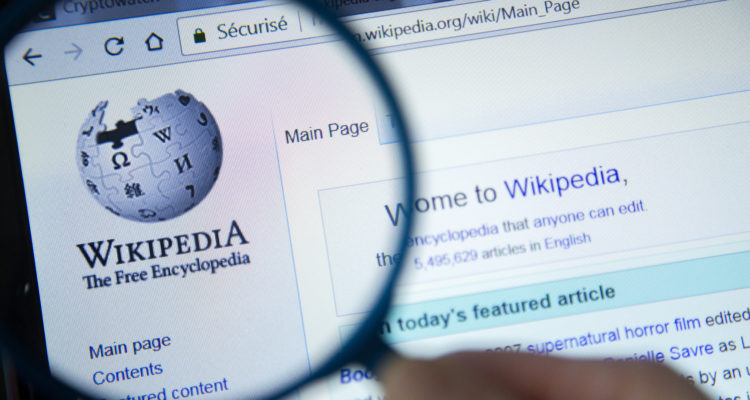World Jewish Congress says Wikipedia’s coverage increasingly tainted by anti-Israel bias, with ‘bullying behavior’ and ‘editorial wars.’
By World Israel News Staff
In the aftermath of October 7, the English-language version of Wikipedia contains an anti-Israel bias that perpetuates disinformation and promotes negative stereotypes, according to a World Jewish Congress report issued Tuesday on the sidelines of the ongoing session of the United Nations Human Rights Council in Geneva.
The bias takes myriad forms, appearing in terminology, framing and lack of context, one-sided sources and critical omissions, among other occurrences, in articles on the ongoing Israel-Hamas war, according to the WJC report.
For instance, biased articles may promote the demonization or delegitimization of Israel; avoid mentioning terrorism and other tangible threats faced by Israel; and lack critical Israeli voices, researchers and facts that may support Israel’s rationale for its policies, the report states.
“We must act now, together, with our unwavering support for Israel,” said Manuel Valls, former French Prime Minister, who delivered the keynote address at Tuesday’s WJC event about the crowd-sourced, online encyclopedia.
He pointed specifically to online social networks as a source of “dangerous misinformation” and said he would “be carefully following the findings of [the] report on antisemitic bias in Wikipedia.”
More than a dozen governments co-sponsored the event.
The WJC report also recommends corrective measures to re-establish the neutrality of the platform, such as the development of best practices to ensure neutral content curation and the regular publication of transparency reports to uphold neutrality and accountability, said author Dr. Shlomit Aharoni Lir, Ph.D., senior fellow researcher at Bar Ilan University and the University of Haifa.
She pointed to several larger factors further complicating Wikipedia’s bias, including bullying behavior, editorial wars and the issue of anonymity.
Wikipedia’s vast influence and reach has made the lack of neutrality even more alarming, Lir said.
“The platform, a source of knowledge for many people around the globe, is readily available to anyone with an internet connection,” she said.
Yfat Barak-Cheney, WJC Director of International Affairs and Human Rights, said the report also “represents a broader call to action for legislators, regulators and users to notice bias and the subsequent ill effects created through a wide range of internet platforms beyond social media.”
The WJC analysis, carried out together with Memetica, was based on research, content analysis and interviews with Wikipedia volunteer editors who are Israeli.
The report’s release is a component of a six-week WJC campaign focusing on the United Nations in both Geneva and New York. During its previous session, which concluded Oct. 13, the Human Rights Council failed to condemn the terror attacks carried out by Hamas.
The WJC campaign also featured a meeting between Volker Türk, UN High Commissioner for Human Rights, and former Israeli hostages whose family members are still being held captive.
WJC Executive Vice President Maram Stern also engaged in a diplomatic marathon for the immediate and unconditional release of the hostages, accountability for terrorism and remedies for the rise of antisemitism in the wake of Oct. 7.
Separately, esteemed panelists including Dr. Cochav Elkayam-Levy, who established the Civil Commission on October 7 Crimes Committed by Hamas Against Women and Children, spoke last week in New York City at a WJC event, “Elevating Women in Foreign Affairs and National Security,” held in connection with the UN’s Commission on the Status of Women.





